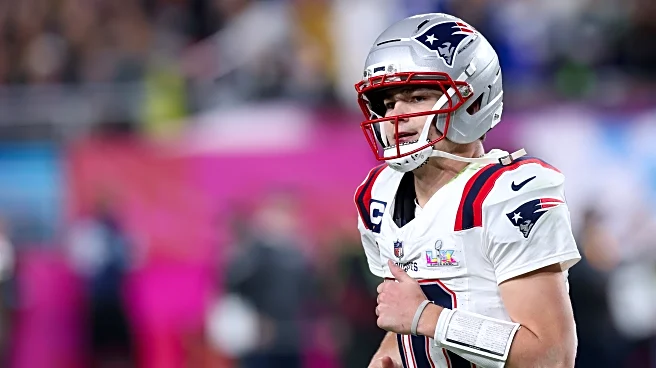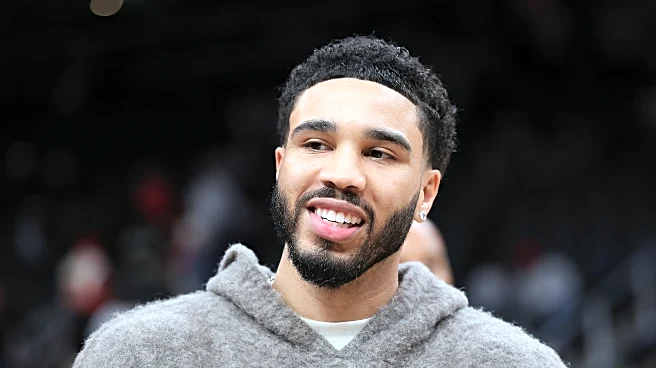What's Happening?
The Detroit Tigers have extended a one-year, $22 million qualifying offer to second baseman Gleyber Torres. Torres, who signed a one-year, $15 million contract with the Tigers last offseason, had a successful
season, slashing .256/.358/.387 with 16 home runs and 74 RBIs. He was named an All-Star for the third time in his career. The offer gives Torres until November 18 to decide whether to accept or decline. If he declines, the Tigers can still attempt to re-sign him, but if he chooses to sign with another team, Detroit will receive a compensation pick in the next MLB Draft. This marks the first time in over a decade that the Tigers have extended a qualifying offer to a player, highlighting Torres' impact on the team.
Why It's Important?
The qualifying offer to Gleyber Torres is significant for both the player and the Detroit Tigers. For Torres, accepting the offer would mean a substantial one-year salary, but declining could open opportunities for a longer-term contract elsewhere. For the Tigers, retaining Torres would bolster their lineup, as he was a key player in their playoff run. However, if Torres signs with another team, the compensation pick could help the Tigers in future drafts. This decision could influence the Tigers' strategy in the offseason, as they weigh the benefits of keeping a proven player against the potential gains from a compensation pick.
What's Next?
Gleyber Torres has until November 18 to make his decision regarding the qualifying offer. If he declines, he will enter free agency, where he is projected to receive offers for multi-year contracts, potentially around three years and $57 million. The Tigers will need to prepare for either scenario, whether it involves negotiating a new contract with Torres or planning for his departure and utilizing the compensation pick. The outcome will likely impact the Tigers' roster decisions and their approach to the upcoming season.
Beyond the Headlines
The decision by Gleyber Torres could have broader implications for the MLB free agency market. His choice between a high-value short-term deal and a potentially lower annual value long-term contract reflects a common dilemma faced by players. This situation highlights the strategic considerations teams must make when offering qualifying deals, balancing immediate player retention against future draft benefits.










